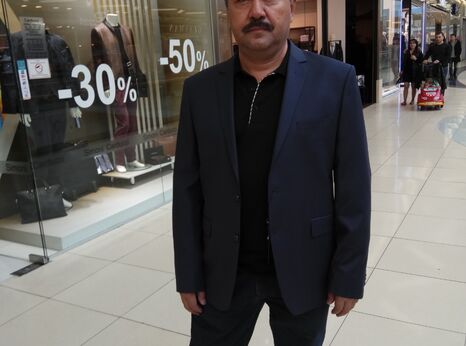Life imprisonment for missing Kazakh writer

Nagyz Muhammed is an ethnic Kazakh Chinese citizen who worked as a writer in Altay’s State Intangible Cultural Heritage Office, Xinjiang Uyghur Autonomous Region (Xinjiang) in northwestern China. He is also a member of the Xinjiang Writers Association who has published two collections of poetry. His family relocated to Kazakhstan in 2012 for better education opportunities. Since then, he has travelled to Kazakhstan multiple times to visit his family.
In early 2018, Nagyz Muhammed travelled to Almaty, Kazakhstan, to stay with relatives after undergoing heart surgery in Urumqi, the capital of Xinjiang. In March 2018, his colleague in China asked him to get back to work urgently. Returning to Altay later that month, Nagyz Muhammed was summoned to the local police station and questioned about his last visit to Kazakhstan.
In April 2020, his family were told by a source that he had been convicted of “separatism” and sentenced to seven years’ imprisonment. However, his family could never confirm it because there were no official documents about the verdict. It was only in September 2020 that his family learned that the information from their source was not true. Though no official documents about the verdict have been made available to his family or lawyer, some relatives were allowed to attend the court hearing behind a screen.
Xinjiang is one of the most ethnically diverse regions in China. More than half of the region’s population of 22 million people belong to mostly Turkic and predominantly Muslim ethnic groups, including Uighurs (around 11.3 million), Kazakhs (around 1.6 million) and other populations whose languages, cultures and ways of life vary distinctly from those of the Han who are the majority in “interior” China.
Media reports have illustrated the extent of new draconian security measures implemented since Chen Quanguo came into power as Xinjiang’s Party Secretary in 2016. In October 2016, there were numerous reports that authorities in the region had confiscated Uyghur passports in an attempt to further curtail their freedom of movement. In March 2017, the Xinjiang government enacted the “De-extremification Regulation” that identifies and prohibits a wide range of behaviours labelled “extremist”, such as “spreading extremist thought”, denigrating or refusing to watch public radio and TV programmes, wearing burkas, having an “abnormal” beard, resisting national policies, and publishing, downloading, storing, or reading articles, publications, or audio-visual materials containing “extremist content”. The regulation also set up a “responsibility system” for government cadres for “anti-extremism” work and established annual reviews of their performance.
It is estimated that up to a million Uyghurs, Kazakhs and other predominantly Muslim people have been held in the “transformation-through-education” centres. The Chinese authorities had denied the existence of such facilities until October 2018, when they began describing them as voluntary, free “vocational training” centres. They claim that the objective of this vocational training is to provide people with technical and vocational education to enable them to find jobs and become “useful” citizens. China’s explanation, however, contradicts reports of beatings, food deprivation and solitary confinement that have been collected from former detainees.
China has rejected calls from the international community, including Amnesty, to allow independent experts unrestricted access to Xinjiang. Instead, China has made efforts to silence criticism by inviting delegations from different countries to visit Xinjiang for carefully orchestrated and closely monitored tours.